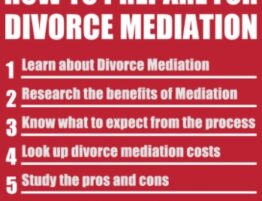
Divorce and the Pandemic
Divorce and the Pandemic
Emotions are running high! Anxiety, stress, fear, and sadness have all been amplified. But what do you do when those feelings affect your marriage? Or, what if prior marital discord has made the “lockdown” far worse? How can you deal with the concept of a divorce at a time like this?
So, you might be in “lockdown” with your spouse — and have been for quite some time. Were you considering a divorce before the quarantine? Perhaps you are thinking about one now. The court systems around the country remain open for this purpose (albeit on a “different” basis and with certain modifications depending on the state), but, as with any major decision, there are a number of factors to be considered.
First, speak to professionals.
A mental health professional can help deal with both ongoing stressors, as well as the issues you have (or which may arise) with your soon-to-be-ex-spouse. You should also consider finding a professional with the ability to speak with you by videoconference or telephone, so that you have access during these times of quarantine. And by the way, if you feel there is a stigma associated with working with a mental health professional, there isn’t!
Also, speak with a financial expert — such as your accountant or financial advisor — as there will be questions about your financial future post-divorce. What obligations will you have? What support will you receive or pay? Can you afford to keep your home? What will happen with your retirement assets? A sound financial plan will help alleviate the “money stress” that is common in divorce.
Consult with a qualified family law attorney.
This is often the first and most important step. Look at their experience and credentials. Are they members of any professional organizations or bar associations? What experiences do they have both inside and outside the courtroom? And, perhaps most importantly, are they accessible, responsive, and are they the right fit for you?
After all, your attorney will be your voice (to a judge, to your spouse and to your spouse’s counsel) during the divorce process. Also consider their ability to communicate with you during the lockdown. For instance, at our respective law firms: Our office phones remain active, a live person always answers calls, emails are running, and we continue to regularly meet with clients virtually via video services and telephone. Accessibility is key.
Maintain some privacy.
In speaking with any of these professionals, ensure you have a private location to communicate, and one in which your spouse cannot access. For emails, ensure that your spouse does not have access to your account. Change your password and confirm that those emails do not show up on other devices in the home, such as a family computer or even your children’s iPads. Remember that cloud-based sharing services like iCloud and Google Drive can be linked across multiple devices, and you may not remember where you are logged in. Change your password and turn off these features on other devices. This includes photo sharing applications and messaging services!
Inventory your belongings.
Make the best use of your time at home and start inventorying belongings. Make copies of important financial records, including tax returns. If you do not have a scanner, there are a number of applications you can download, which turn your phone into a portable scanner. You can also download account statements online while you still have access to the accounts. Itemize personal property with significant value such as jewelry, artwork and collectibles. Include photos that have date-stamps (this is usually built into your cell phone). Store everything in a secure location — whether printed or digitally.
This doesn’t mean you’ll definitely get divorced.
Of course, taking these steps to prepare does not necessarily mean that your marriage will wind up in divorce. It simply means you are prepared for what may (or may not) lie ahead. If nothing else, you will at least have a grasp on your personal situation which is always beneficial.
There are various considerations when deciding when to file for divorce and this is a critical conversation to have with your attorney. This decision depends on each individual relationship and should be based on your personal situation.
Remember: You have options.
There are also alternatives to divorce. For instance, a postnuptial agreement can be prepared. This is like the more-well-known prenuptial agreement, but is done during the course of a marriage (rather than before it). It can govern your ongoing relationship as well as what happens if you do wind up getting divorced. The same information noted above will be necessary to prepare a postnuptial agreement.
Likewise, there are alternatives to litigation and trial. As family law litigators, we are often asked to serve as a mediator for divorce and family law disputes because our courtroom experiences provide insight into how cases are ultimately resolved or decided. Online mediation is now a reality. While in-person mediation is the norm, online mediation can now occur through video services with each party and their team in different “virtual rooms” with screen sharing abilities, and even settlement agreements can be signed digitally. You can use mediation to settle your entire case or even just temporary issues like financial disclosures, temporary support, timesharing with children, living arrangements, etc.
Most of all: Take care of yourself.
While much of the world is at a standstill right now, it is important to take care of your own psyche, and many individuals find that they are a better person, partner, and parent and are happier when they are not with their current spouse!
Divorce and the Pandemic
CLICK HERE to schedule an appointment with the law firm.
CLICK HERE to view books published by Ronald Cook



